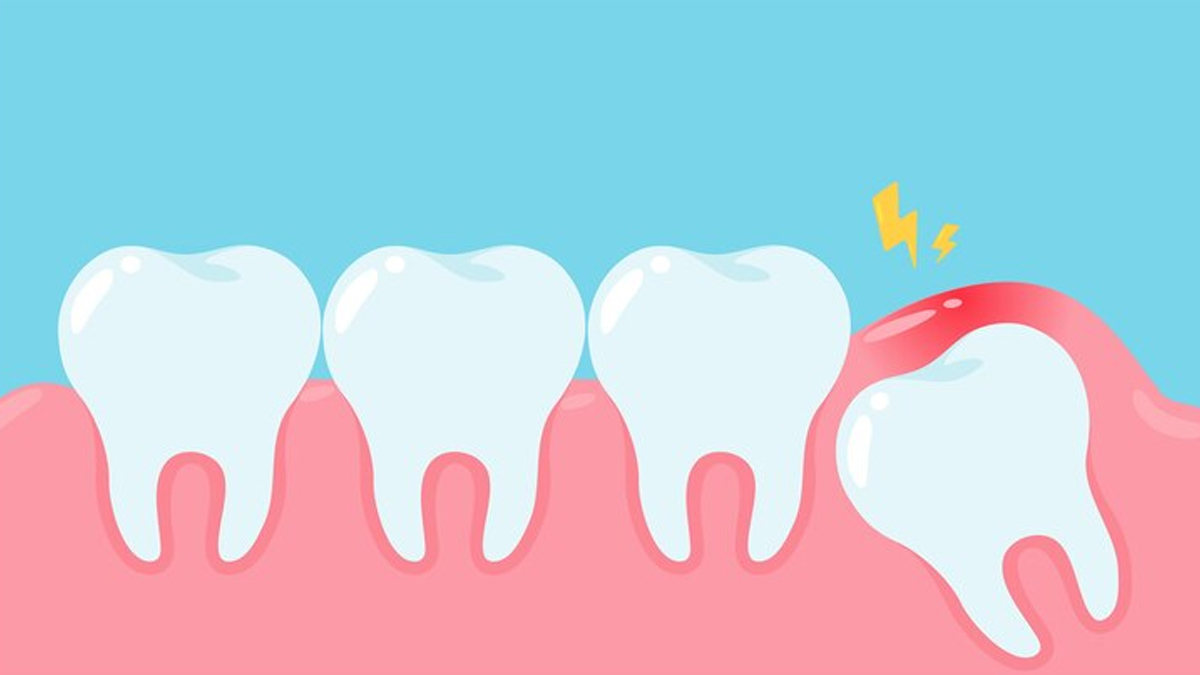
An impacted wisdom tooth occurs when a tooth does not fully emerge from the gums, leading to various dental problems such as pain, swelling, and infection. It is a common condition. Many people may require dental intervention to alleviate the symptoms. Dr Nihal Yadav, BDS (PGI Rohtak), Amayra Dental Clinic, Kaushik Enclave, Burari, Delhi, a former resident at Deen Dayal Hospital, Hari Nagar, explains what is impacted wisdom teeth and what you can do about it.
Table of Content:-
Symptoms Of Impacted Wisdom Tooth
It is important to note that impacted wisdom teeth can cause complications if left untreated. They can lead to infection, damage to adjacent teeth, and even cysts or tumours. You may also experience pain and swelling around the jaw, bad breath, an unpleasant taste in the mouth, red, swollen, or bleeding gums, and problems opening the mouth.
Treatment Of Impacted Wisdom Tooth
The best course of action for an impacted wisdom tooth is to see a dentist or oral surgeon. They will perform an examination of the affected area and may recommend an X-ray to assess the severity of the impaction. Based on this, the dental professional may recommend various treatment options.

Also Read: 5 Complications That May Arise After Wisdom Tooth Removal
In some cases, the impacted tooth may need to be extracted. If the tooth is not causing any symptoms, your dentist may recommend monitoring the tooth and leaving it in place. However, if the impacted tooth is causing pain, swelling, or infection, it will likely need to be removed. The extraction can be done under local anaesthesia or sedation, and the dental professional will discuss the best option for you.

Surgery may be required to remove the impacted wisdom tooth in severe cases. Some cases require the removal of the surrounding tissue, bone or even a portion of the jaw.
Home Interventions To Alleviate Pain
In addition to dental intervention, there are several measures you can take at home to reduce the pain and discomfort caused by an impacted wisdom tooth.
Ibuprofen or paracetamol are two over-the-counter painkillers that can help relieve pain and inflammation. Ice compresses applied to the afflicted region can also help lessen discomfort and swelling.

You can also use salt water rinse to encourage recovery and decrease inflammation in your mouth. It is recommended to rinse your mouth with salt water several times a day. To prepare the salt water rinse, dissolve one spoonful of salt in a cup of warm water. Have a sip of it and swish it around in your mouth for about 30 seconds before spitting it out.
Also Read: 5 Signs That Indicate Your Wisdom Teeth Are Coming In
Maintaining good oral hygiene is also essential to prevent infection and promote healing. Do not give up brushing and flossing. Do it regularly to keep the afflicted region clean. Use a soft-bristled toothbrush and avoid brushing too hard, which can irritate the gums and cause bleeding.
Bottomline
Seeking dental care as soon as possible is essential to prevent further complications. They will perform an examination and recommend treatment options based on the severity of the impaction. In addition to dental intervention, taking pain medication, applying ice packs, rinsing with salt water, and maintaining good oral hygiene can help alleviate the symptoms.
Image Credits: freepik
Also watch this video
How we keep this article up to date:
We work with experts and keep a close eye on the latest in health and wellness. Whenever there is a new research or helpful information, we update our articles with accurate and useful advice.
Current Version